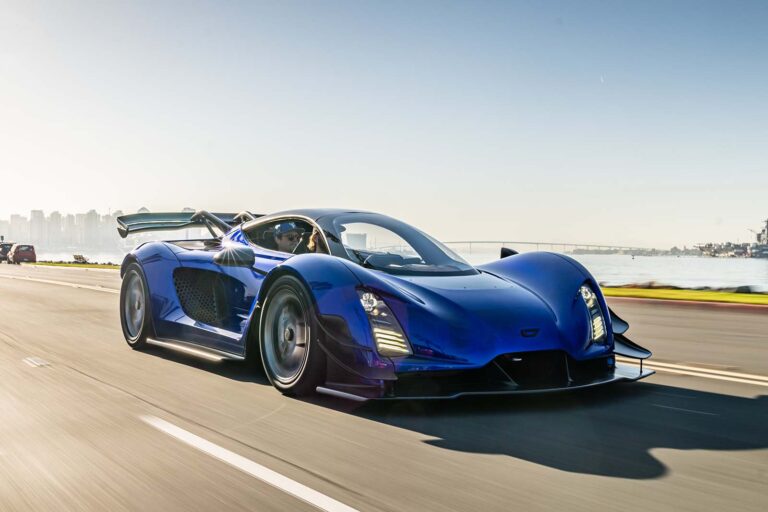Component design goes from around 18 months to a matter of weeks, according to Lukas, and there’s no conventional prototyping process to factor in, so “as soon as that design is done, your part is typically right first time”.
Furthermore, the lack of hard tooling means designers and engineers have more freedom to change the product once it is already on the market, with no need to consider the millions of pounds invested in the production of a specific grille panel or suspension mount, for example. Essentially, additive manufacturing “massively de-risks the design you’ve made from a capital standpoint”.
In this sense, Divergent has the potential to be the world’s most flexible and cost-effective manufacturing partner, claims Lukas: “We’re like [contract manufacturers] Foxconn or Magna on steroids, except we’re 100% flexible to our product mix.”
There are also huge sustainability implications, explains Kevin Czinger, founder of Divergent and – you guessed it – Lukas’s dad.
“Imagine taking 20%, 30% or 40% of the mass out of structures while keeping or improving baseline crash [safety] and performance: that’s where you reduce the impact on the planet,” he says. “It’s called dematerialisation: a beer can 50-60 years ago required 83g of aluminium. The wall of the can got thinner and thinner and they developed a different tab, so that’s now 12.7g.”


